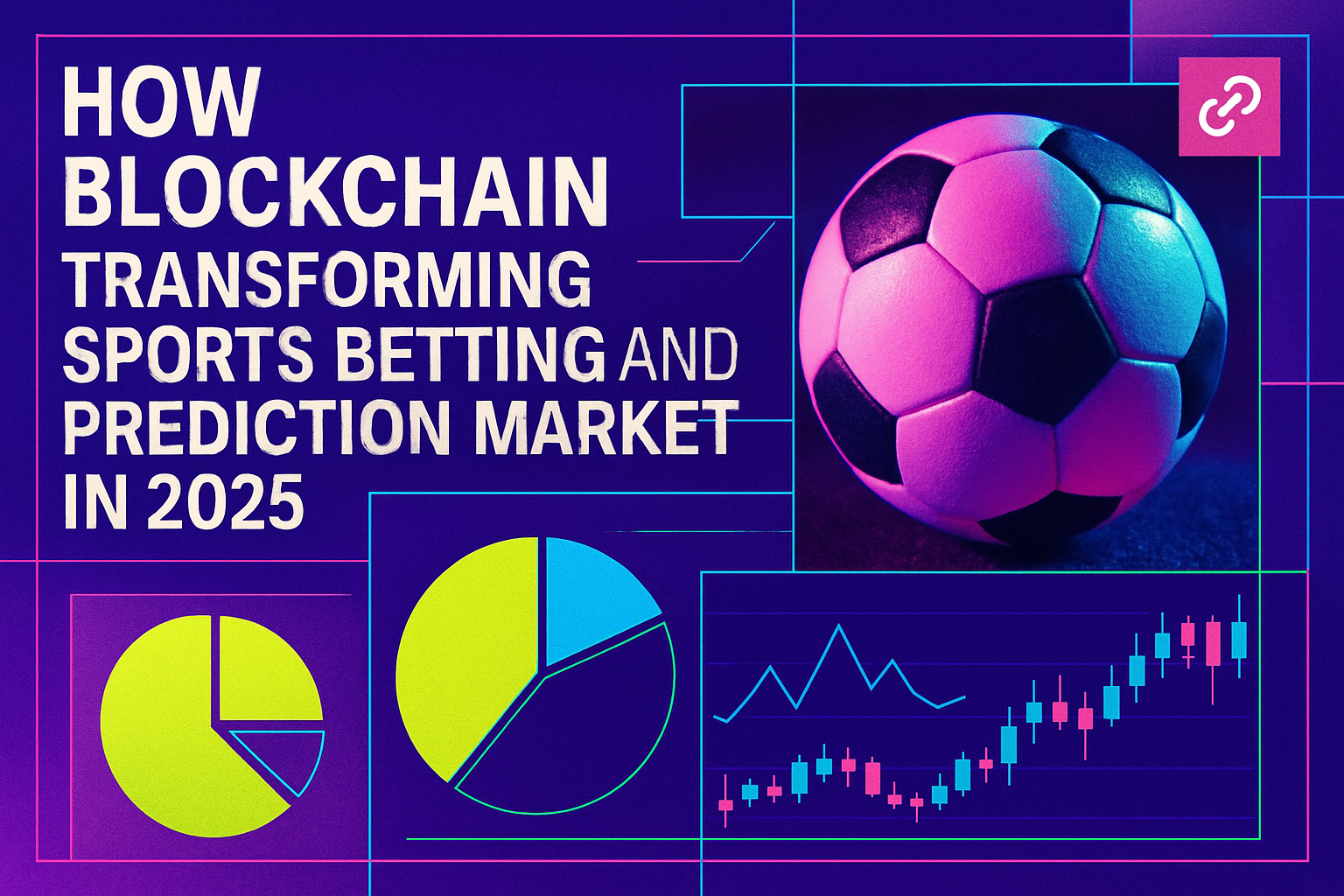How On-Chain Prediction Markets Are Transforming Sports Betting in 2025

The year 2025 is shaping up to be a watershed moment for sports betting, as on-chain prediction markets redefine how fans, traders, and crypto enthusiasts wager on real-world outcomes. No longer confined to the limitations of traditional sportsbooks, bettors are flocking to blockchain-powered platforms that promise transparency, global access, and a radically different user experience. If you’re wondering why “on-chain sports betting 2025” is trending across crypto Twitter and Discords, it’s because the old playbook has been thrown out.

Decentralization: The End of the Middleman
Traditional online sportsbooks have always operated as centralized entities. This means they set odds behind closed doors, control user funds, and can restrict or even ban successful bettors. In contrast, decentralized sports betting crypto platforms like Polymarket and Kalshi use blockchain ledgers to record every transaction and outcome publicly. This transparency not only eliminates manipulation but also builds trust in the odds themselves, a critical advantage in an industry historically plagued by opacity.
The result? Every bet is verifiable on-chain. Anyone can audit market activity in real time, making it virtually impossible for operators to alter outcomes or withhold payouts without detection. As
The Platform Wars: Who’s Leading On-Chain Sports Betting?
The competitive landscape is heating up as established players and new entrants race to capture market share:
- Polymarket: After acquiring derivatives exchange QCX for $112 million, Polymarket is poised to re-enter the U. S. market legally, bringing its signature blend of real-time blockchain odds and deep liquidity pools to regulated states.
- Kalshi: With a $5 billion valuation following its $300 million Series D round, Kalshi has expanded its reach into over 140 countries, demonstrating massive global demand for decentralized event trading.
- Crypto. com x Underdog Sports: Their partnership now offers sports prediction markets in 16 U. S. states, especially targeting regions where legal sportsbooks haven’t yet launched.
- PrizePicks x Polymarket: This collaboration merges fantasy sports with regulated blockchain-based predictions for deeper fan engagement.
The surge in investment tells its own story: Over $216 million poured into the sector across 11 deals this year alone (source: ChainCatcher). As these platforms mature, expect even tighter integration between live sporting events and sports betting on blockchain.
Battling Legal Gray Zones and Regulatory Headwinds
No innovation comes without friction, and on-chain prediction markets are under intense regulatory scrutiny worldwide. Massachusetts regulators recently investigated Robinhood’s new prediction hub after it launched contracts tied to March Madness basketball outcomes (Reuters). The legal ambiguity surrounding what constitutes “betting” versus “trading” remains unresolved in many jurisdictions.
This uncertainty hasn’t slowed growth; if anything, it’s spurred creative workarounds like FanDuel Predicts, a platform designed specifically to navigate U. S. restrictions while delivering core features of decentralized wagering (CNBC). The prevailing trend? Platforms are building compliance-first frameworks while lobbying for regulatory clarity that will ultimately legitimize real-time blockchain odds at scale.
What’s clear is that the appetite for transparent crypto betting platforms is outpacing regulatory inertia. Users value being able to audit smart contracts, track their wagers in real time, and avoid arbitrary limits or sudden account closures. The move towards no maximum bet sizes and open liquidity means that sharp bettors and syndicates, once persona non grata on traditional books, are now welcomed as liquidity providers, not threats.
This new paradigm is also democratizing access. In 2025, whether you’re in Lagos or Los Angeles, you can participate in global markets without the friction of currency conversion or KYC hurdles that have historically excluded emerging market bettors. The impact? A surge in liquidity and sharper odds for everyone involved.
User Experience: From Clunky to Seamless
Legacy crypto betting sites were often plagued by slow settlement times, clunky interfaces, and opaque fee structures. Today’s leaders, driven by fierce competition, have flipped the script. Modern on-chain platforms deliver real-time blockchain odds, instant settlement of winning bets, and gasless transactions through layer-2 scaling solutions.
The result is a user journey that rivals (or surpasses) the best Web2 sportsbooks but with the added assurance of provable fairness. For fans accustomed to delays and disputes over payouts, this is a game changer, and it’s fueling mass adoption among both retail punters and sophisticated traders seeking edge cases in global sports events.
The Next Frontier: Social Trading and Data-Driven Markets
The convergence of prediction markets with social trading is another 2025 trend worth watching. Platforms like Polymarket now offer on-chain copy trading tools for sports betting accounts, allowing users to mirror top performers’ strategies directly from their wallets. This not only levels the playing field but also creates a new breed of influencer: The decentralized tout who proves their edge transparently on-chain.
Meanwhile, AI-powered market-making bots are sharpening prices faster than ever before, making inefficiencies rare but highly lucrative for those who can spot them early. Expect further integration between blockchain prediction markets sports, live data feeds, and automated trading tools as the space matures.
Looking Ahead: What Matters Most for Bettors?
The real revolution isn’t just about technology, it’s about trust and empowerment. Bettors are no longer passive consumers at the mercy of opaque operators; they’re active participants in shaping markets where every trade is transparent and every outcome auditable.
As regulatory frameworks catch up with innovation, and as mainstream platforms integrate decentralized rails, the line between sportsbook and prediction market will blur even further. For those willing to embrace change (and volatility), 2025 offers unprecedented opportunity to trade opinions for profit on a global stage.







